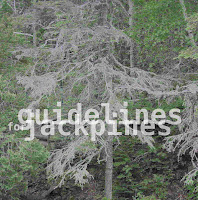Love and kindness
Has it ever occurred to you to wonder why you cannot love someone simply by being kind to them? Kindness is a wonderful thing, but I think you will agree with me that it is not equal to love. If you love someone, in any of the many ways you can do so, and you receive back their kindness alone, you will immediately feel the coldness of that virtue.
A child is born under the immediate burden of the most pressing and basic needs. In fact, an infant can be said to have two states: satisfaction and dissatisfaction. When they are satisfied, they sleep. However, it is through dissatisfaction that we all first give voice. Generally that is, in fact, how we emerge. So, every born soul has first turned to the outward with dissatisfaction, fear, helplessness, and the cry of demand. However, very soon we open our eyes, and we have a second way of turning outward: curiosity. Our first means of satisfaction is by the provision of our mothers. Our second means of satisfaction is through our own curiosity. And, indeed, of these two, kindness and caring is born of the first exchange, and love itself comes from the second.
Let's consider for a moment, then, why we should consider kindness to have a certain coldness. Here we turn from our infant, and consider a more mature version of ourselves, though this self comes in what might be considered another type of birth cycle, more or less at the time of adolescence. At this point, the self becomes a more important and defined concept, and the nature of that self grows more readily apparent. To oversimplify, one might say that to some, the self is a structure, and to others, an organism. For those who dwell in a structure of self, there is kindness and unkindness. For those who dwell in an organism of self, there is caring and uncaring. Those most disposed to kindness have a self in which they are glad to dwell. But, hence, by showing kindness, they show the coldness of those whose desire is a light covered, as it were, by the glass of their own breast.
Love has at its tips curiosity, and thus it is by this quality we most readily perceive it. To follow all of its strands to the center of caring (to those you love, there can be no kindness. Much as one may be predisposed to the self as structure, relationship demands a greater flexibility, an organic element. We are speaking here without making a careful definition of the furthest reaches of the conception of love), to follow those strands is difficult, but if, in the end, we cannot, love becomes monstrous in some way, and we shun that creature when we recognize it.
When, after all, we find love that is curious for us, and also caring towards us, we can be satisfied, like the children we are. When the childish self in us is satisfied, the parts of the self that have grown over this core are free to flower and fruit, like vines on a sturdy garden wall. If the child in us is not thus satisfied, it cannot escape being fearful.
I have come to believe that it is this fearful state which is the primary mark of what it means to be human. It is fear that drives us to a narrativity by which we attempt to condition experience. It is fear that makes us untruthful to ourselves, and leads us often to flee from the self and grow to hold our life an arms length away. Fear subverts the curious and fuels an insatiable craving to make answers. Fear subverts those who would love, and makes them kind. If you love someone, and get kindness back, fear is the coldness you perceive.

